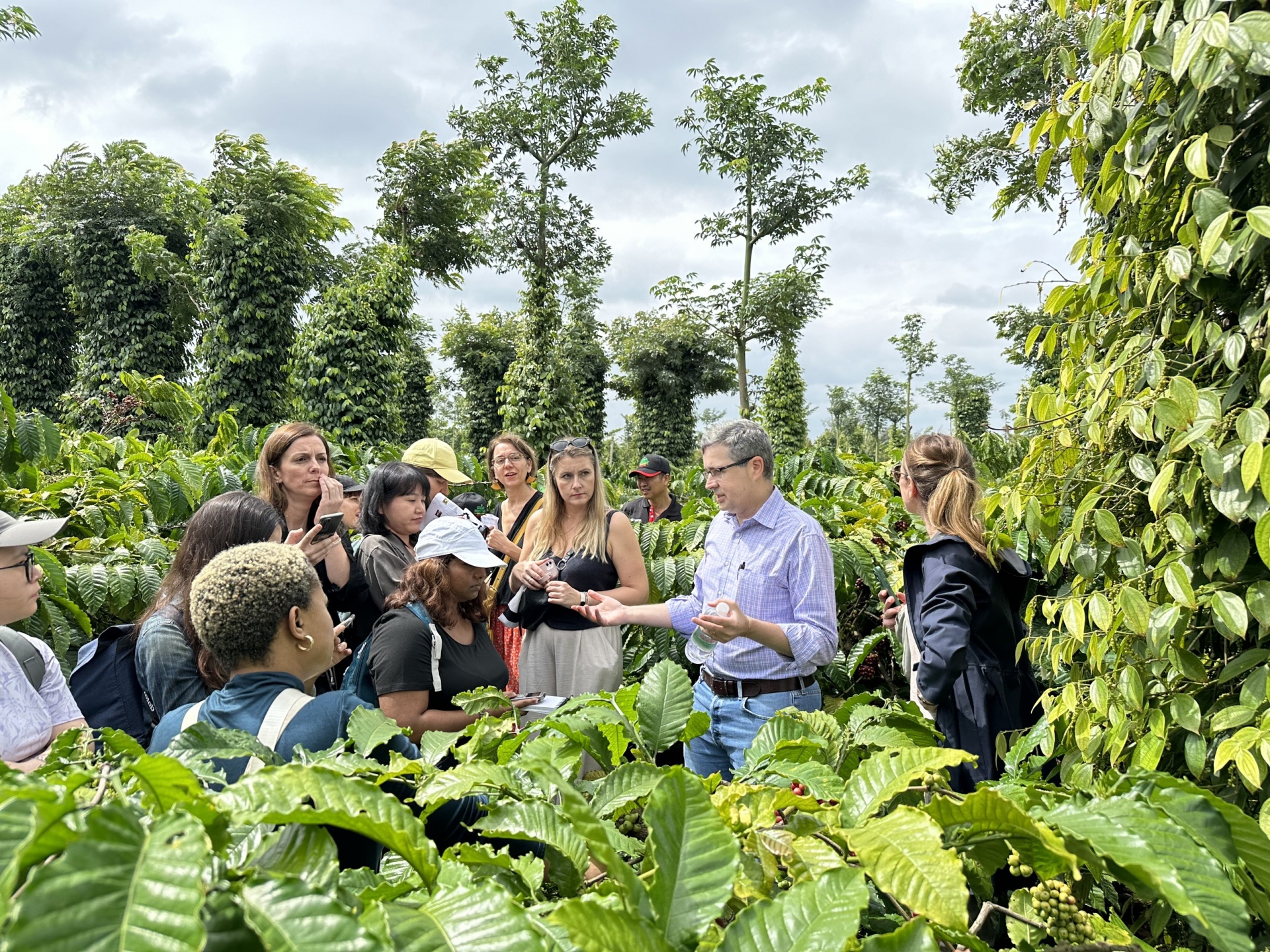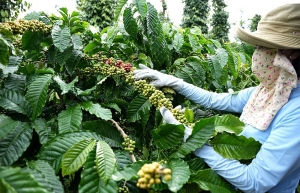Nestlé promoting Vietnamese coffee to the world
 |
Nearly 30 Nestlé representatives from many countries, along with reporters and editors from foreign news agencies, participated in the 3-day media trip from November 27 to 29. This is an opportunity for Nestlé Vietnam to introduce regenerative agriculture, and engagement activities with coffee farmers, sustainable coffee farming processes, as well as deep processing activities to enhance the value of Vietnamese coffee beans.
During the media trip, international reporters experienced the process of producing high-quality Vietnamese coffee beans. They also explored Nestlé's coffee replanting and sustainable coffee farming programmes while visiting Nestlé's cutting-edge coffee processing factory.
After 12 years of the implementation of the NESCAFÉ Plan in the Central Highlands, Nestlé Vietnam has distributed more than 73.5 million high-yield, disease-resistant coffee saplings to replant aged coffee plantations. As a result, farmers have reduced the amount of irrigation water by 40–60 per cent, as well as the amount of pesticides and chemical fertilisers by 20 per cent. Farmers also apply the intercropping technique of coffee and pepper to increase land efficiency and biodiversity while reducing environmental emissions.
As of 2023, 90 per cent of farmers have planted cover crops (out of the total gardens surveyed), while 86 per cent of gardens have diversified crops with an average of three different species. Thanks to sustainable farming practices, farmers' income has risen by 30–100 per cent compared to before participating in the NESCAFÉ Plan. At the same time, all coffee supplied from Vietnam meets the Common Code for the Coffee Community (4C) standards for domestic consumption and export to 29 markets worldwide.
Within the framework of the programme, the delegation also visited Nestlé Tri An Factory, one of Nestlé's largest factories in Vietnam and also one of the group's largest and most modern coffee processing plants in the region.
International reporters were introduced to modern production lines following a circular process, ensuring quality throughout the sustainable coffee value chain from farming to purchasing, production, processing, export, and consumption.
The delegation not only learned about Nestlé's sustainable farming efforts in coffee gardens but also explored the company's sustainability initiatives in production, such as the circular economy models, as well as the process to treat, recycle, and reuse waste from production.
Each year, 60–65 per cent of wastewater is treated for reuse at the coffee processing factories. Meanwhile, 100 per cent of coffee grounds are converted into biomass energy. Sand from the boiler is provided to partners as raw material for unburnt brick production.
Since 2015, all Nestlé's factories in Vietnam have reached the goal of “zero waste to landfill."
Thanks to these efforts, Nestlé not only produces delicious coffee from responsibly farmed beans but also contributes to a sustainable future for the country.
 | Nestlé Vietnam values partnerships for sustainability goals The circular economy and sustainable development are long roads that one cannot travel alone. Everyone must go together, including manufacturers, distributors, managers, and consumers. |
 | Nestlé supports farmers to advance regenerative agriculture More than one-third of global anthropogenic greenhouse gas (GHG) emissions come from agriculture, and the sector also accounts for 70 per cent of global freshwater withdrawals. Therefore, transitioning from traditional farming methods to low-emission, regenerative agriculture is considered one of the most important solutions to respond to climate change and contribute to the development of sustainable food systems. |
 | Nestlé Vietnam issues long-term commitment to enhance women’s livelihoods Within the framework of the Nestlé Accompanying Women programme, 13,000 women members were trained on nutrition, life knowledge and skills, happiness, and health. |
What the stars mean:
★ Poor ★ ★ Promising ★★★ Good ★★★★ Very good ★★★★★ Exceptional
 Tag:
Tag:
Related Contents
Latest News
More News
- State corporations poised to drive 2026 growth (February 03, 2026 | 13:58)
- Why high-tech talent will define Vietnam’s growth (February 02, 2026 | 10:47)
- FMCG resilience amid varying storms (February 02, 2026 | 10:00)
- Customs reforms strengthen business confidence, support trade growth (February 01, 2026 | 08:20)
- Vietnam and US to launch sixth trade negotiation round (January 30, 2026 | 15:19)
- Digital publishing emerges as key growth driver in Vietnam (January 30, 2026 | 10:59)
- EVN signs key contract for Tri An hydropower expansion (January 30, 2026 | 10:57)
- Vietnam to lead trade growth in ASEAN (January 29, 2026 | 15:08)
- Carlsberg Vietnam delivers Lunar New Year support in central region (January 28, 2026 | 17:19)
- TikTok penalised $35,000 in Vietnam for consumer protection violations (January 28, 2026 | 17:15)






















 Mobile Version
Mobile Version